L.A.’s ‘rainy season’ can be the most beautiful time to hike. But read these tips first
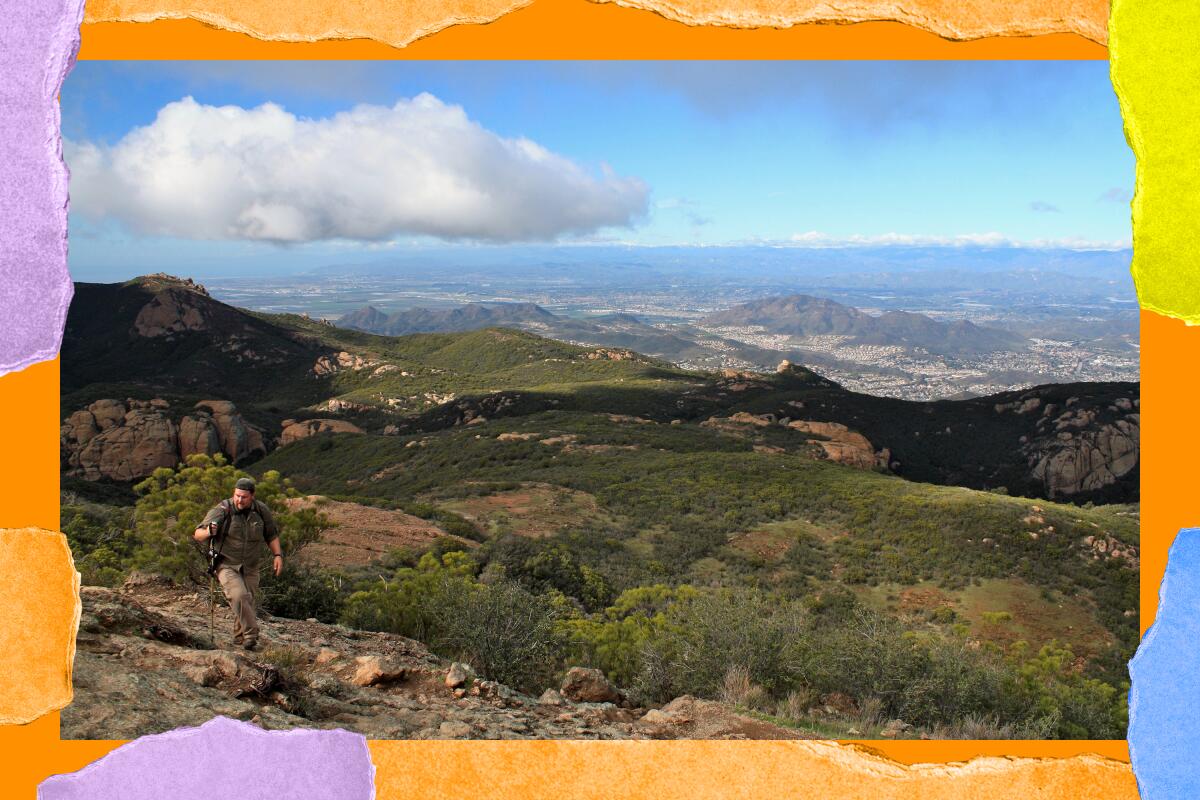
As a New Englander who made his way to Los Angeles, I admit that I fell into the trap of assuming Southern California had no seasons. But paying attention to my natural surroundings on hiking trails opened up a new framework for me. We don’t have the traditional “spring, summer, fall and winter” but our own unique SoCal versions of the seasons.
What I call endless summer — hot, dry days punctuated by Santa Ana winds — can sometimes stretch into December, so the cooler temperatures last week and the heavy precipitation this week were a welcome respite.
Get The Wild newsletter.
The essential weekly guide to enjoying the outdoors in Southern California. Insider tips on the best of our beaches, trails, parks, deserts, forests and mountains.
You may occasionally receive promotional content from the Los Angeles Times.
Rainy season, which ideally will last from now through around April (emphasis on “ideally”), is my favorite time to hike in Southern California. The air is cleaner, crisper and cooler. The views seem to stretch on forever. The dew and rain activate the terpenes in our sage scrub and chaparral, bringing that iconic “cowboy cologne” scent back into our lives. And unlike many other parts of the country that experience a more traditional winter, we can get out and hike pretty much all year and not really have to worry about switching up the gear we’re using.
You might want to use this time to revisit some trails and parks you’ve enjoyed during the summer months just to see how much they’ve changed. You don’t need to travel that far for what I consider some of the best post-rain views in Los Angeles — both Kenneth Hahn State Recreation Area and the trails in the Puente Hills are true stunners, and the trail network in both places has options for every hiker.
There are a few things to keep in mind, though:
- Don’t hike when it’s actually raining. Although it’s dependent on our various local microclimates, when it does rain here it can come down in short, heavy bursts. This can be especially dangerous in the mountains, where weather can be much less predictable, as well as in canyons and deep valleys where flash floods may appear without warning — even in canyons far away from any falling rain.
- Wait a day or two before hitting the trails. Although it’s tempting to go for a hike as soon as the clouds clear, it’s best to give the trails some time to dry out a bit. Especially on popular routes, hikers stomping their boots into muddy trails can do some real damage. Some park systems, like those in the Puente Hills, are even closed for 48 hours following a rainstorm.
- Check forecasts and road conditions: The weather at your apartment in Culver City is not the same as the conditions up on Pleasant View Ridge in the San Gabriel Mountains. I always like using the National Weather Service because you can see active warnings and click around on a map to find an exact location for a weather forecast, but users on the SoCal Hiking subreddit have compiled a great list of resources and live webcams too. If you plan on spending any time in the San Gabriels or San Bernardinos, you’ll also want to bookmark the CalTrans Road Info site. Just put in the state highway number and you’ll get the current closures and conditions for California state highways. The Angeles Crest Highway is CA-2; the Rim of the World Drive is CA-18.
It won’t be too long before all those cozy warm layers of clothing get stuffed in the back corner of your closet again, so enjoy it while it lasts.
Things to do
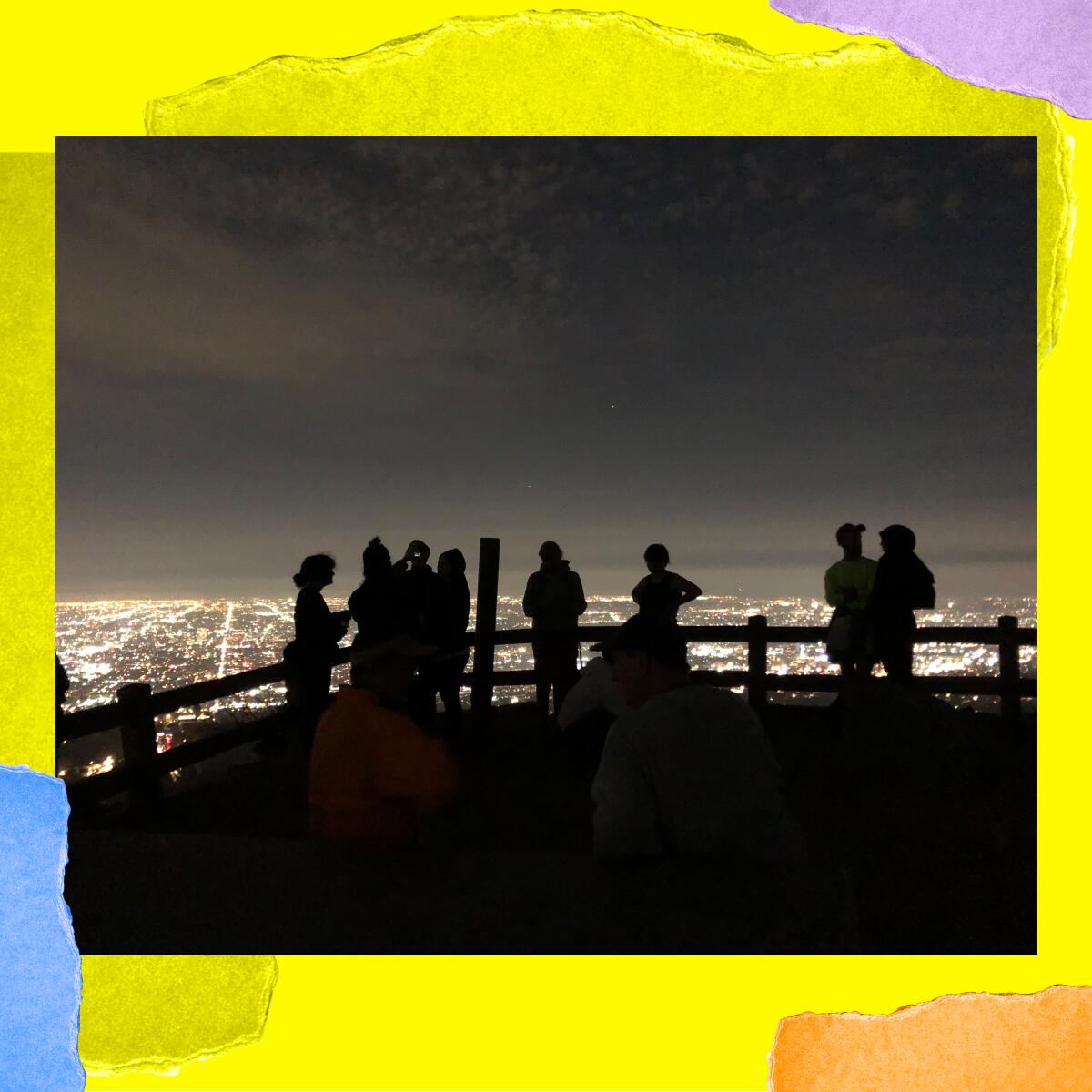
1. Hike by moonlight in Griffith Park. If you’ve never done a night hike before, there is no better way to try it than by joining the Sierra Club for one of its world-famous Griffith Park moonlight hikes. (OK, if they’re not world-famous already, they should be.) On Saturday, the moon will be in its “waning gibbous” phase (there’s a term to drop into your everyday convos) as you trek from the Merry Go Round Lot into the Santa Monica Mountains for stunning nighttime views. This is a moderate four- to five-mile hike. Rain cancels. Free. Arrive at 7 p.m. Additional info and directions here.
Check out “The Times” podcast for essential news and more.
These days, waking up to current events can be, well, daunting. If you’re seeking a more balanced news diet, “The Times” podcast is for you. Gustavo Arellano, along with a diverse set of reporters from the award-winning L.A. Times newsroom, delivers the most interesting stories from the Los Angeles Times every Monday, Wednesday and Friday. Listen and subscribe wherever you get your podcasts.
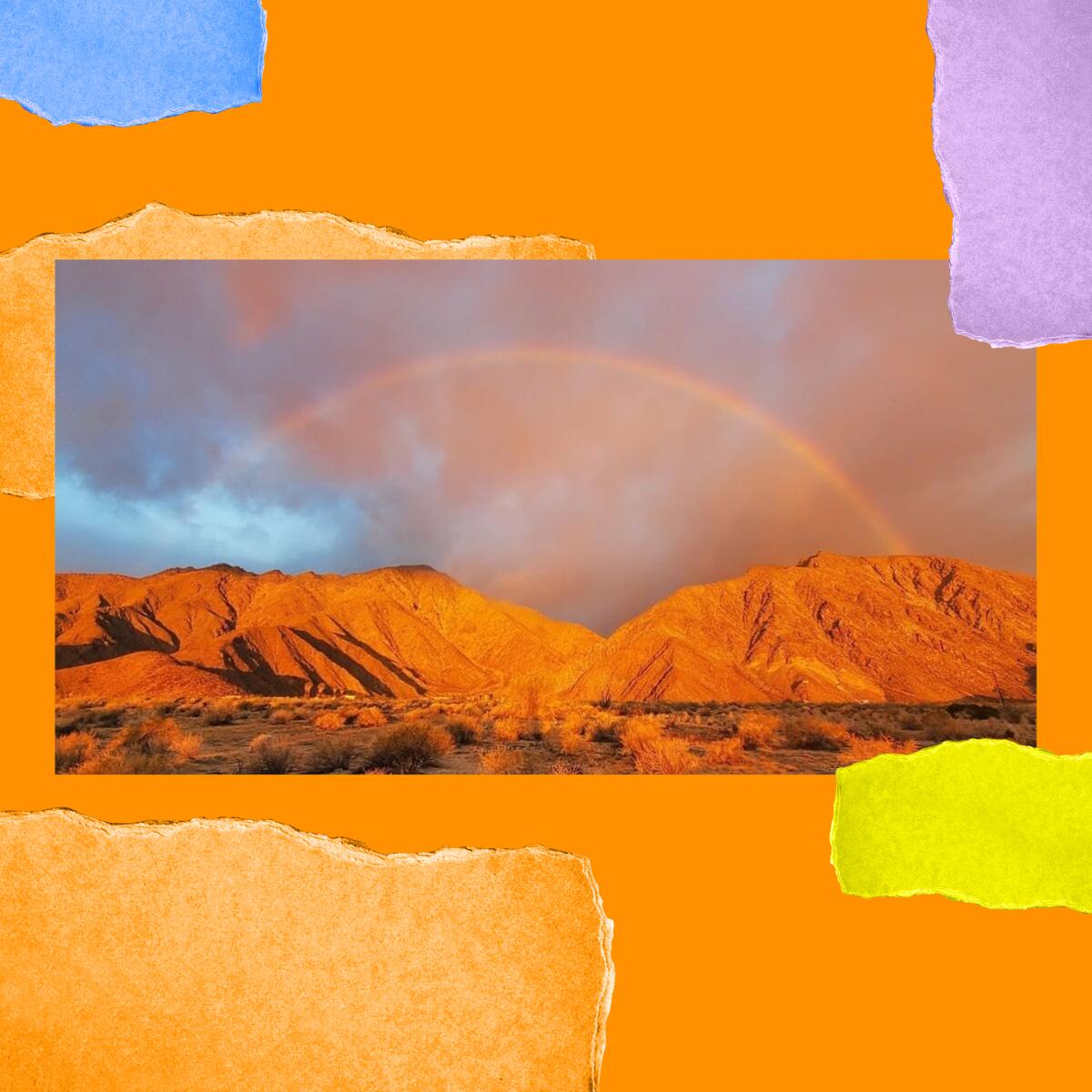
2. Grab a pint for Anza-Borrego State Park. Cooling temperatures and snowcapped mountains aren’t just good news for snow-sports folks. They also mean we are finally back in desert hiking season! Celebrate and help out our beautiful Anza-Borrego Desert State Park at the Pints 4 the Park celebration on Saturday from 5:30 to 8 p.m. Admission includes three drink tickets, food and a souvenir pint glass. The event is $35 per person, and you can purchase your tickets ahead of time here. Head to the park’s visitors center for the party.
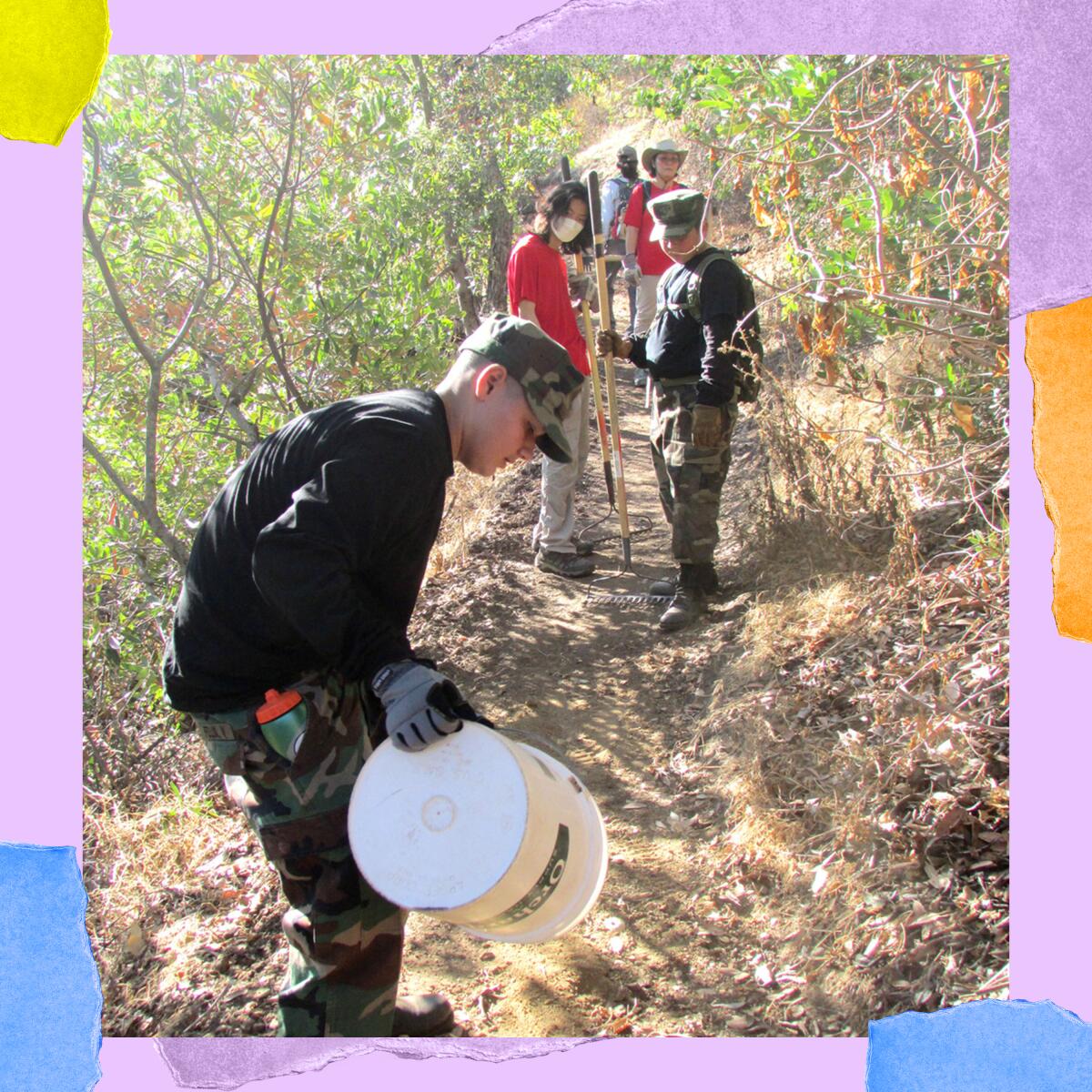
3. Chip in at L.A.’s finest city park. Griffith Park is L.A.’s largest city park — and one of the largest urban wilderness parks in the country. Among its many superlatives, it’s also a very heavily visited park, which means it gets a lot of wear and tear. If you’ve enjoyed or been inspired by this special place, consider joining Friends of Griffith Park this weekend to help keep the park in tiptop shape. On Saturday from 8:30 to 11:30 a.m., volunteers will be mulching an area near the Greek Theatre to prep for native planting later. And on Monday from 2 to 3:30 p.m., there will be a trash-pickup event at Shane’s Inspiration playground. Join the Friends of Griffith Park volunteer list for more info on these and future events.
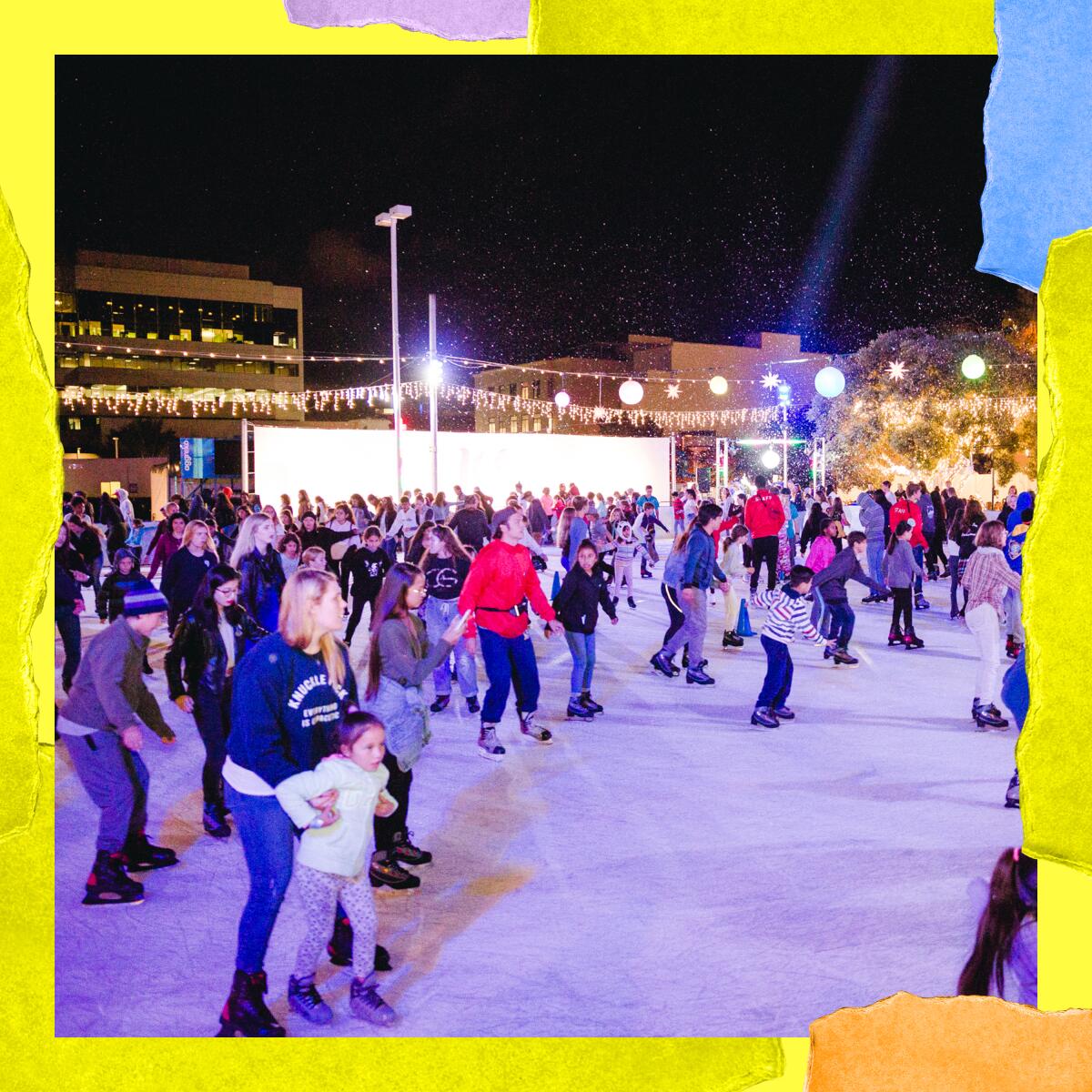
4. Ice skate in Santa Monica. After a two-year hiatus, the 8,000-square-foot Ice at Santa Monica rink reopens with a celebration on Wednesday, Nov. 16. Party on the ice from 6 to 10 p.m. with live music, food and more. Skate rental and all-day admission is $20. If you can’t make the party, don’t worry: The rink is scheduled to be open until Jan. 16. Head here for more info.
The must read
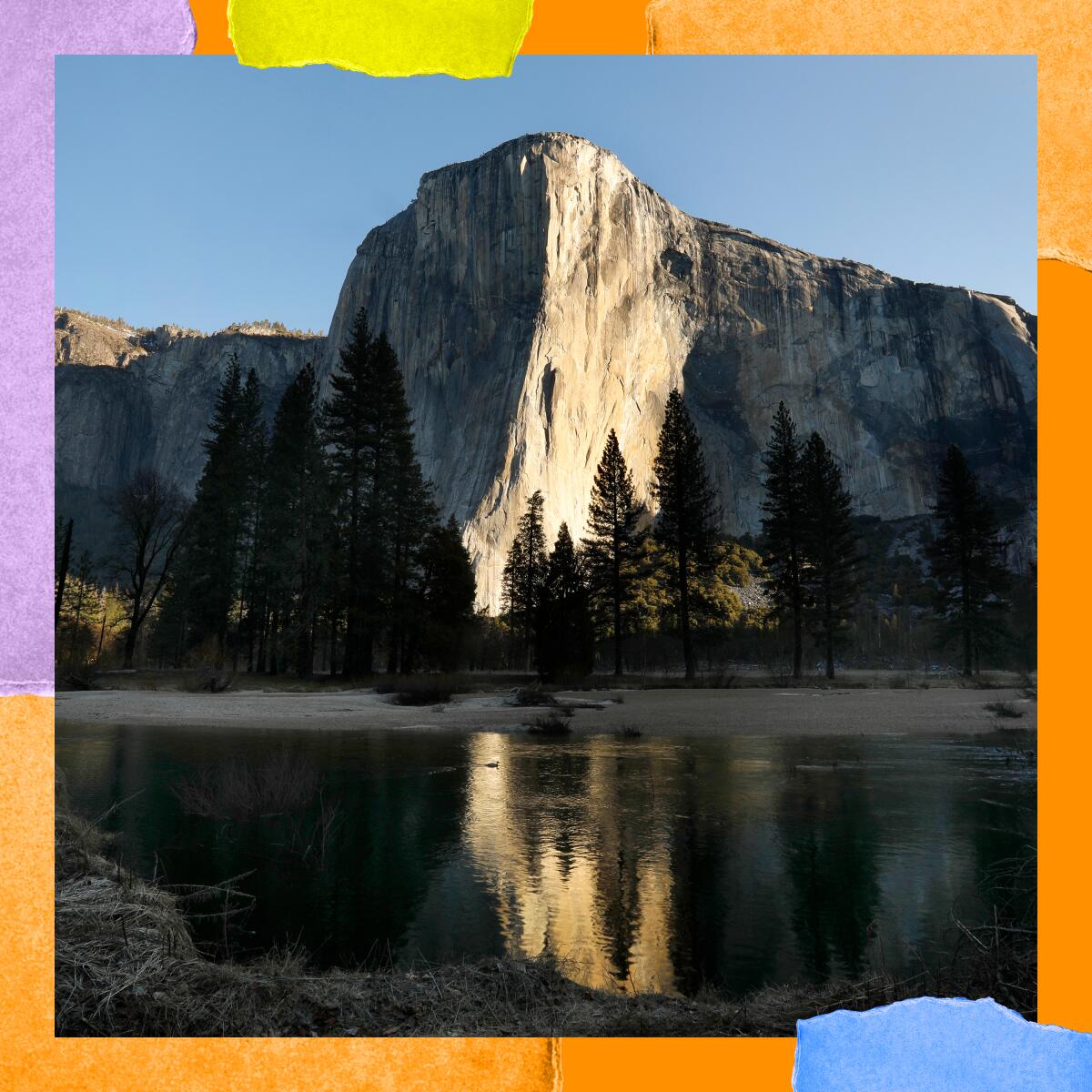
El Capitan’s youngest climber … maybe. Last week, Coloradan Joe Baker signed onto his personal Facebook page for a proud update about his 8-year-old son, Sam, saying, “He is now officially the youngest person to climb ElCapitan [sic].” The story blew up, landing the duo nationwide media coverage and a spot on ABC’s “Live With Kelly and Ryan,” but … was Sam actually the youngest El Cap climber? Well, to echo a former president, that depends on what your definition of the word “climbing” is. San Francisco Chronicle writer Gregory Thomas has a deep dive on the ensuing kerfuffle, which involves ropes, a fundraising effort with shifting goals, fastidious photographers, potentially illegal climbing guides and — of course — nitpicking on social media. Whatever happens with this, I hope Sam keeps doing cool stuff in the outdoors, and I look forward to the eventual limited podcast series on this controversy.
The red flag
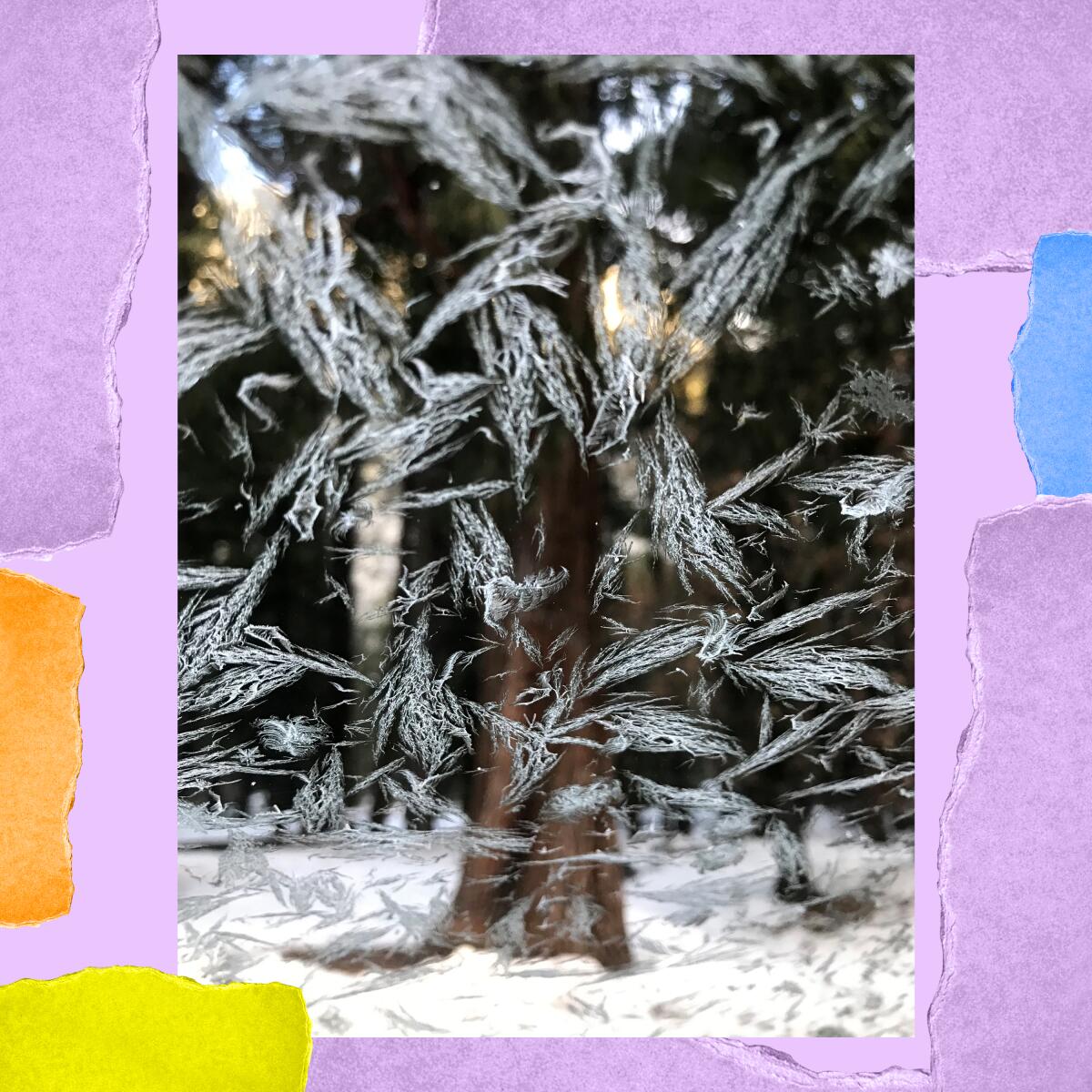
As I wrote last week, the COP27 climate conference is happening in Cairo right now, which means there’s probably going to be a lot of bummer news coming out of there for a bit. To kick things off, how about some climate projections that glaciers in Yosemite and Yellowstone will likely be gone by 2050? A report just announced that up to a third of the 18,600 glaciers currently inside UNESCO World Heritage Sites will no longer exist by then. Maria Cramer’s COP27 analysis in the New York Times notes that these figures are meant to “pose a challenge to the travel industry” and that “aviation represents around 17 percent of total travel carbon emissions.”
Let me just note that COP27 chose not to have their conference on Zoom.
Cool stuff

It’s probably not a surprise to learn that skiing doesn’t exactly have the lightest carbon footprint. In 2017, Outside’s editors produced 32,508 pounds of carbon in a single season. And on top of all that, ski gear is notoriously difficult to recycle — at least until now. The French company Rossignol just unveiled the Essential, created using brand-new technology that makes the skis 77% recyclable. The new skis will also use recycled, bio-sourced and natural materials, eco-friendly dyes, and will be produced with renewable energy. Even better? The company plans on sharing this technology with others in the industry so they can produce recyclable models too. The Essential will go on sale later this year, priced at $1,049 with bindings. Hey, I said skiing was getting more eco-friendly, not cheaper!
Wild thing

Did you know that right now L.A. is on the road to enact a new law that would establish an official wildlife district in the Santa Monica Mountains? Councilmember Paul Koretz first proposed a motion asking the planning department to craft an ordinance eight years ago (speed of government, y’all), and now finally, on Nov. 17, that ordinance will go to the Planning Commission, which will then reject it or recommend it to the L.A. City Council to potentially vote into law. If enacted, the new law would set regulations within an area of the Santa Monicas roughly between the 405 and Cahuenga Pass that would help prevent construction from cutting off wildlife corridors, encourage landscaping and fencing standards, and generally just make life a little easier for our animal neighbors. Find out why The Times’ editorial board says the law is just what our city needs.
P.S.

Want to give your phone’s background a refresh? The L.A. Times Plants Instagram is highlighting the exquisite work of L.A. artist Lesley Goren and will be sharing a new wallpaper option each Wednesday. Goren’s work is colorful, fun and heavily informed by our state’s beautiful native plants (this is one of my favorites).
Don’t forget, if you’ve got an event or know someone worth spotlighting, shoot me a line.
And if you get some incredible photos from your hikes now that the rain has cleared, send them to me at [email protected] and I might share some next week.
For more insider tips on Southern California’s beaches, trails and parks, check out past editions of The Wild. And to view this newsletter in your browser, click here.
Sign up for The Wild
We’ll help you find the best places to hike, bike and run, as well as the perfect silent spots for meditation and yoga.
You may occasionally receive promotional content from the Los Angeles Times.




